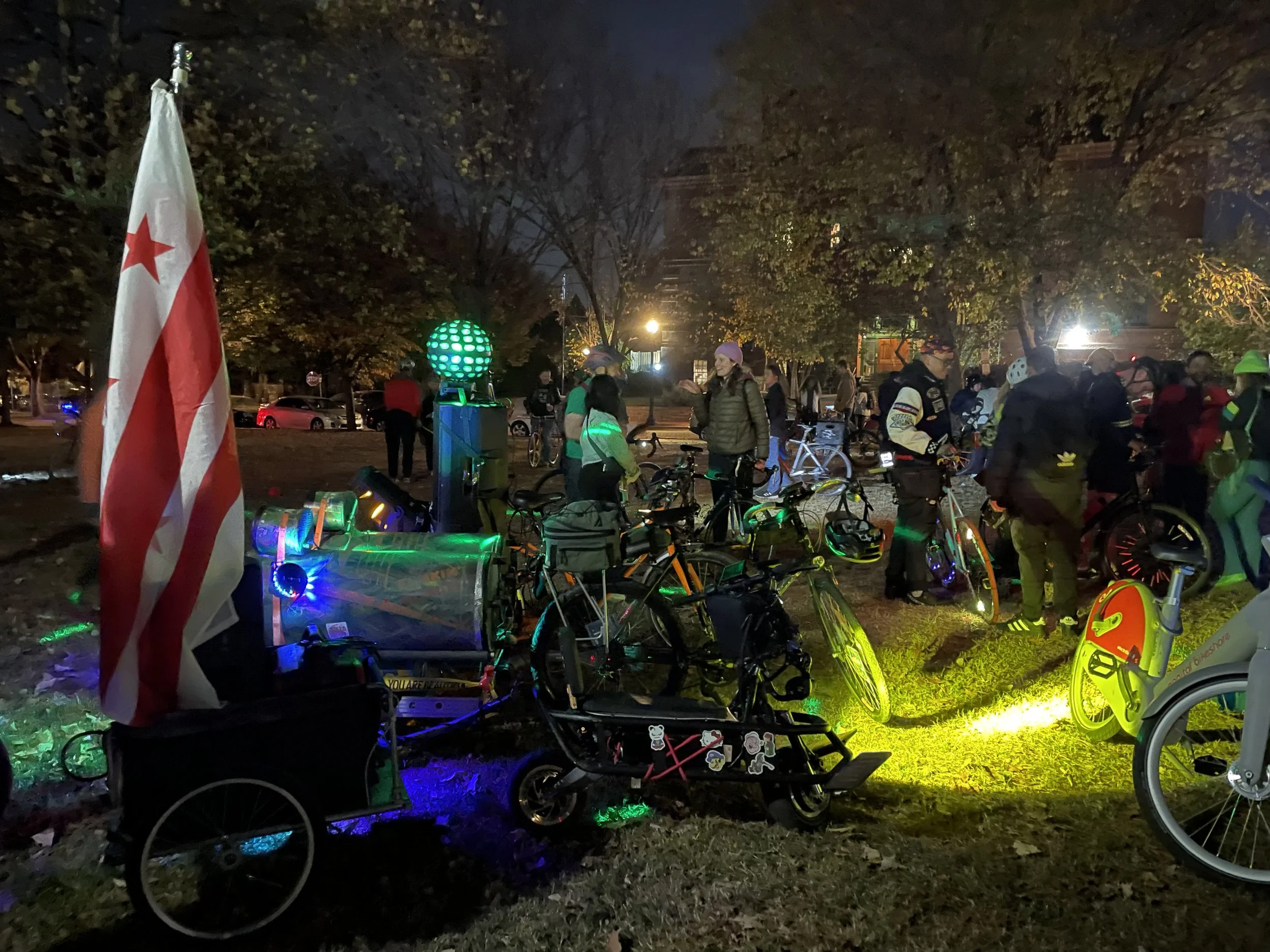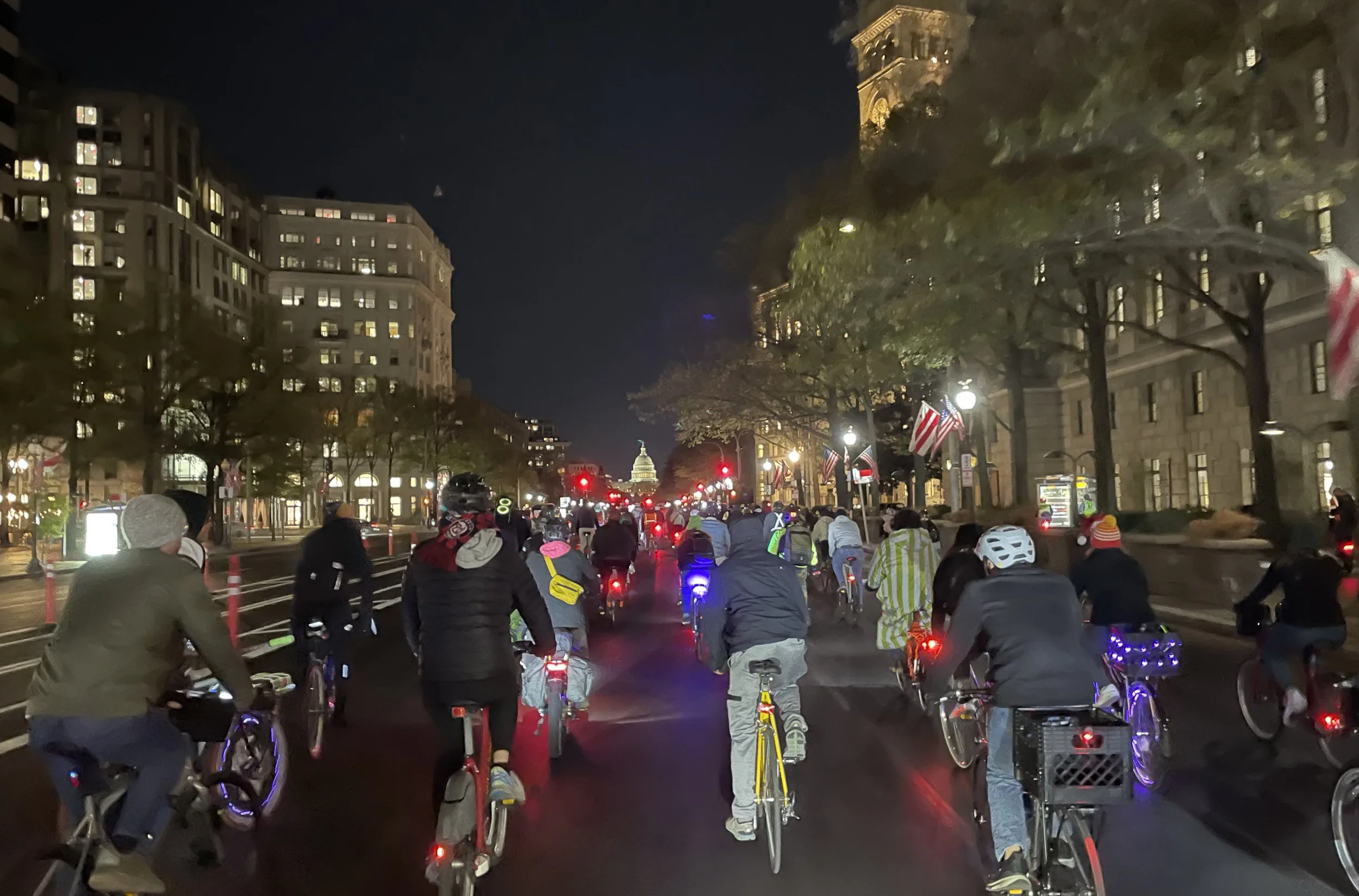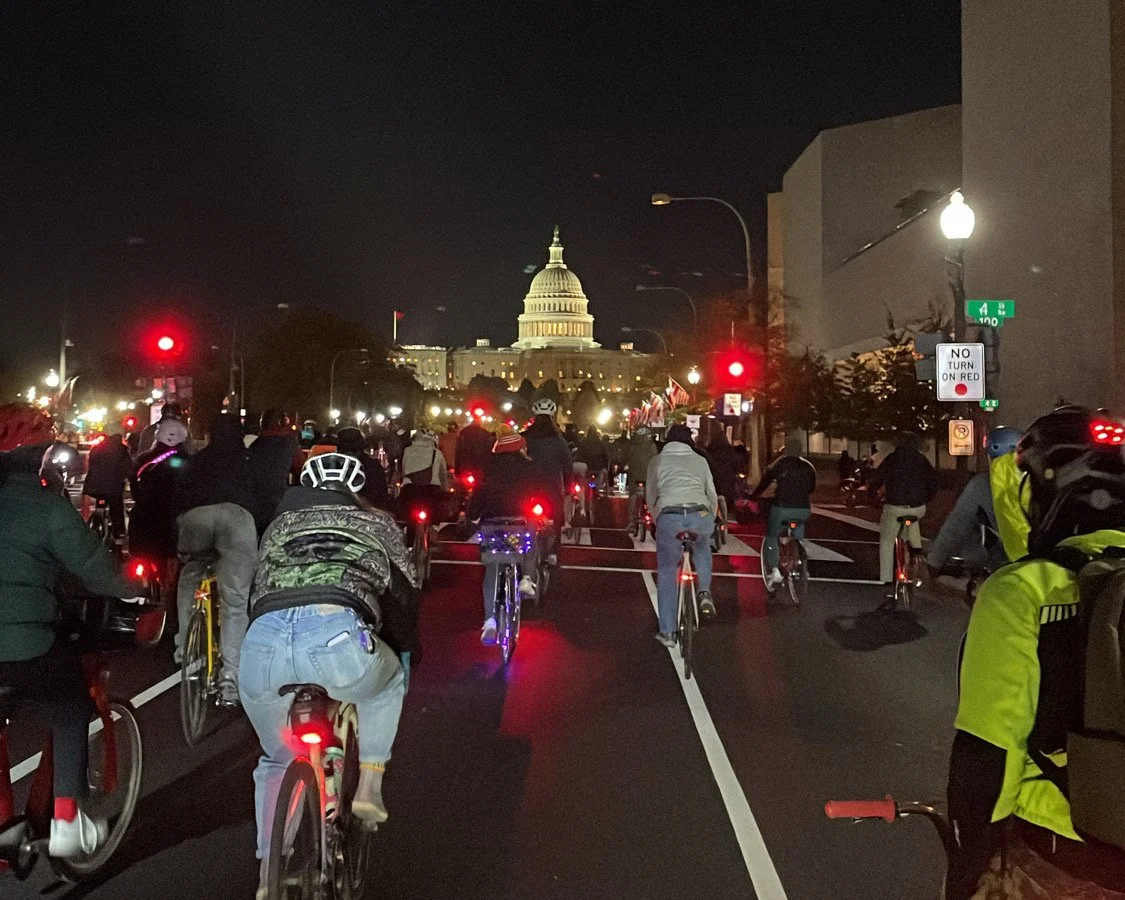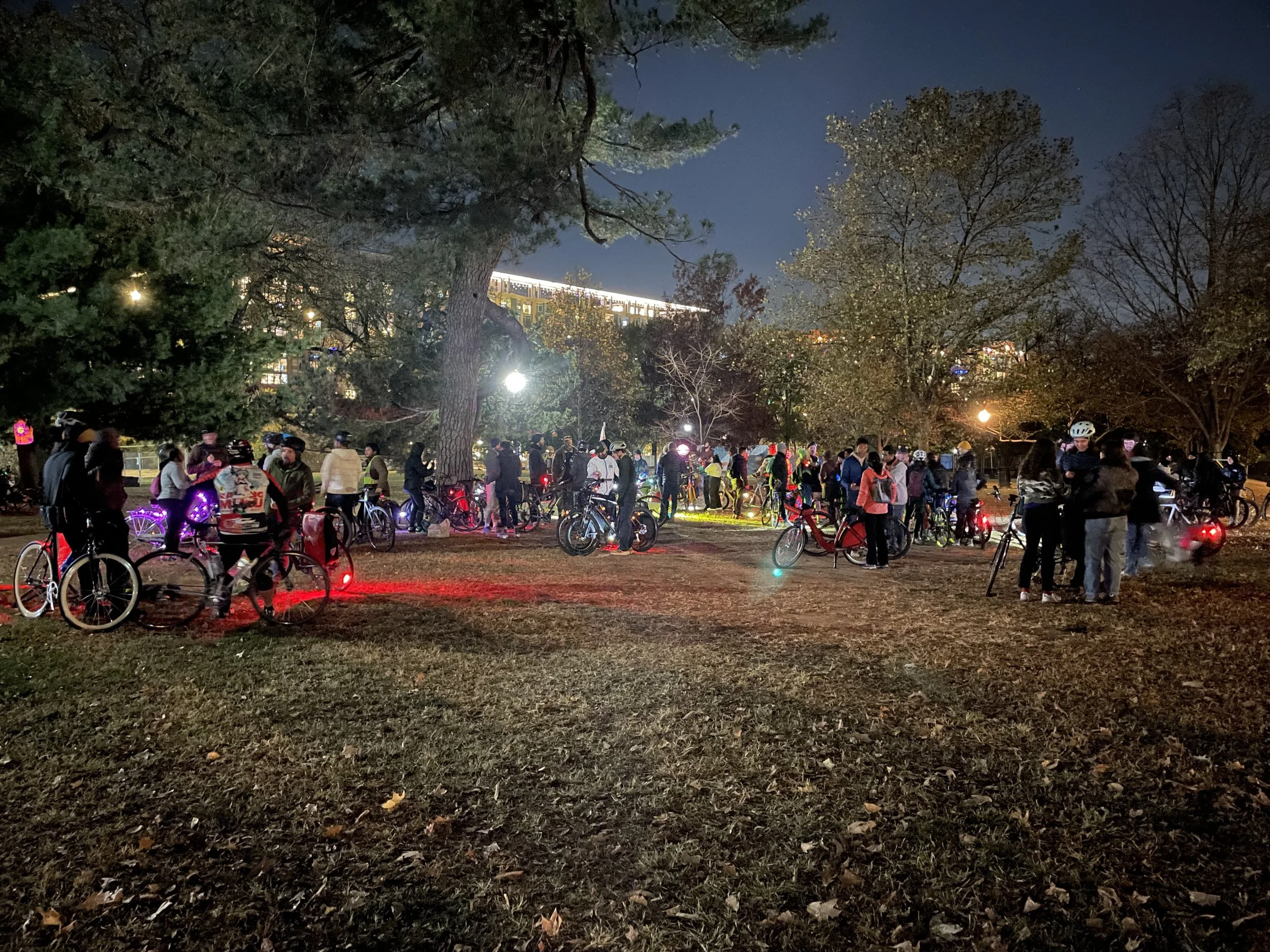DC Bike Party
DC Bike Party was exactly what it sounds like, a party on bikes! Held once a month at Dupont Circle, it was a relaxed, chill ride with an easy pace. Beyond the party, the ride's mission is to protect the freedom of assembly, and it’s organized to do just that. Utilizing ride leaders and volunteers, this ride is well-organized and safe for all participants.
Having just returned from Burning Van in Richmond the day before and spending the whole day sewing, I felt socially drained, so I kept to myself for much of the ride. I did meet someone who was good friends with a friend I made in Houston, and it’s always humbling when you realize just how connected the bike community is. However, one conversation truly stood out to me.
While discussing bike activism, someone mentioned they had flown a well-known "bicycle advocate" from Portland to DC to help improve their local efforts. When they found out I was from Portland, they asked my opinion of this person. I asked them why, and they explained they felt disappointed after the visit. They described the advocate as “arrogant” and were surprised by how little work they actually seemed to do compared to their reputation. I couldn’t help but laugh and agree.
This conversation highlighted something I’ve noticed as I travel around the country. Many people who haven’t visited Portland romanticize it as "the best bike city," but those who have visited or looked into the bike activism in Portland are often left feeling disappointed. Portland’s reputation is no longer as deserved as it once was. Cities like DC, Houston, San Diego, and others have made remarkable strides in infrastructure and culture, and I’ve met many effective activists in these cities. The events I’ve attended elsewhere have higher attendance and are more effectively organized, with tangible strategies and actionable goals that foster real change.
In Portland, there’s a growing tendency to use divisive language like “war on cars” and “cagers,” and shaming drivers has become the norm. These phrases and actions, however, aren’t effective for creating lasting change. Being "anti-car" alienates people who might otherwise be allies or new cyclists. Real change comes from highlighting the joys of cycling while making small, meaningful shifts that include everyone.
The conversation around cycling in Portland is dominated by White men, and this hasn’t gone unnoticed by the rest of the country. In the United States, commuting by bike is very much a privilege. I wish I were joking when I say that during one of the rides I hosted, a participant yelled at a driver, “Haven’t you ever been to Europe?”. Race, privilege, and gentrification are critical issues that cannot be ignored when advancing bike infrastructure, yet these issues are largely overlooked by the old guard of activists in Portland. Other cities recognize the importance of inclusivity in their activism, and Portland could learn from these more diverse and intersectional approaches.
I hope to bring home some of what I’ve learned during my travels. I write these posts and make these videos to show people that our community is everywhere, and we come from all backgrounds.
I recently posted an interview with The Awarewolfs, this San Diego group does wonderful work in their community and is worth giving a read.




